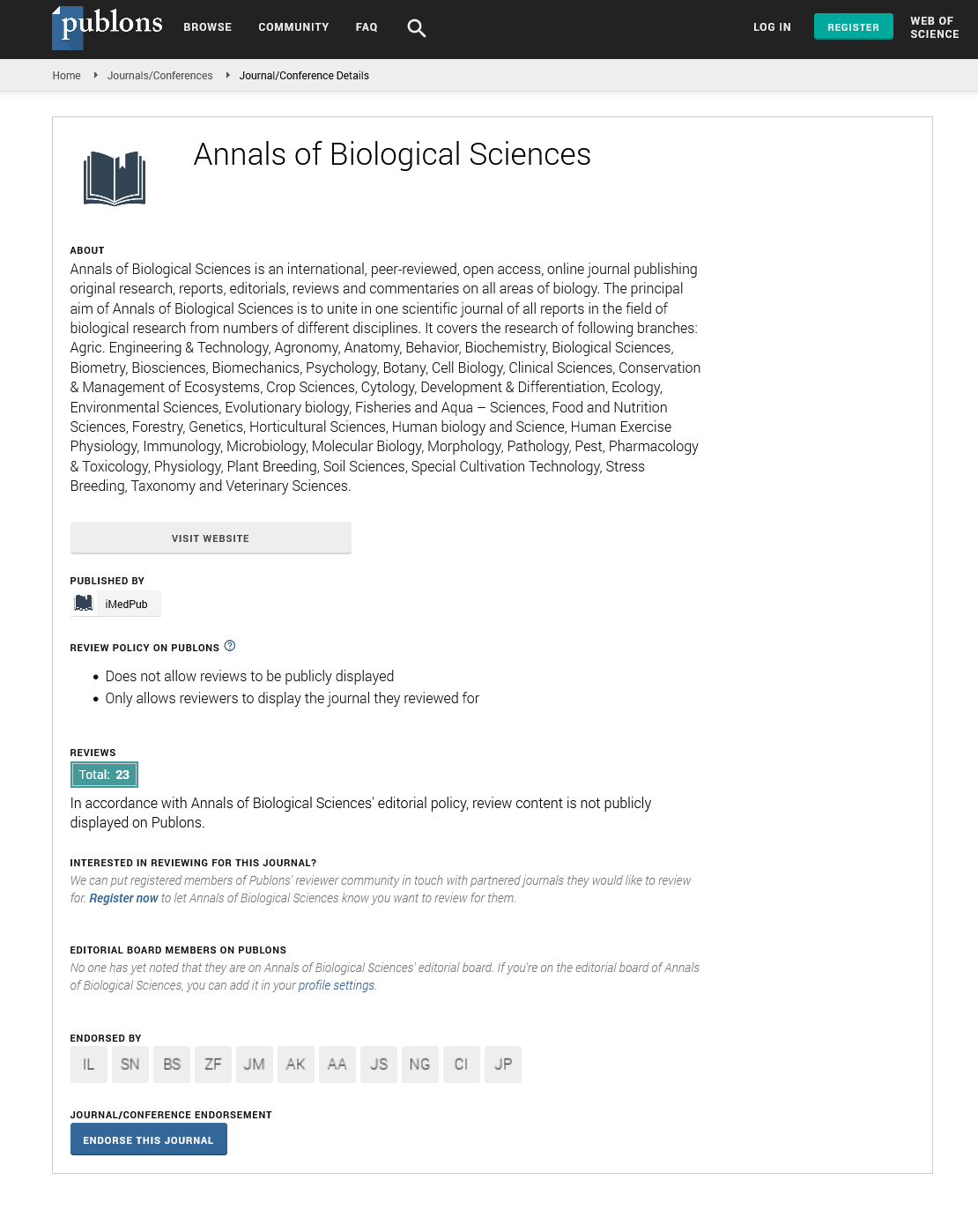ISSN : 2348-1927
Annals of Biological Sciences
Inhibition of the inhibitors of apoptosis (IAP) genes and selective apoptosis of HIV-infected human macrophages
ANNUAL BIOTECHNOLOGY CONGRESS
August 17-18, 2017 | Toronto, Canada
Ashok Kumar
Children├ó┬?┬?s Hospital of Eastern Ontario, Canada
ScientificTracks Abstracts: Ann Biol Sci
DOI: 10.21767/2348-1927-C1-002
Abstract
To eradicate HIV in individuals on ART (antiretroviral therapy), it is imperative to eliminate both CD4+ T cells and myeloid cell reservoirs. Most research to-date has focused on eliminating the latent reservoir of CD4+ T cells. However, information regarding the potential elimination of HIV-infected macrophages is lacking. We have previously demonstrated that resistance of monocyte-derived macrophages (MDMs) to Vpr-induced effects was attributed to inhibitors of apoptosis (c-IAP-2) expression. These results suggest that strategies based on suppressing IAP-1/2 by its specific inhibitor, smac mimetics (SM) may be useful in killing HIV-infected macrophages. Our results show that SM do not affect uninfected normal MDMs but selectively kill in vitro HIV-infected macrophages, and macrophages derived from the HIV-infected patients. We also show that by using HIV-GFP strain, SM induced apoptosis of HIV- infected macrophages. In addition, HIV-chronically infected U1 cells were highly susceptible to SM-induced apoptosis in contrast to its corresponding U937 cells. We have investigated the molecular mechanism governing selective apoptosis of HIVinfected macrophages by SM. Our results show that SM induced macrophage cell death through apoptosis and not through necroptosis. Furthermore, SM-induced apoptosis in HIV-infected macrophages is not mediated through TNF-├?┬▒. In addition, in vitro HIV infection inhibits expression of RIP-1, RIP-3 and TRAF-1 and bid. Inhibition of Rip-1 by its inhibitor, necrostatin, induced cell death in normal macrophages following treatment with SM suggesting a key role for Rip-1 in SM-induced killing of HIV-infected macrophages. Overall, the results suggest that inhibitions of IAPs could be a potential strategy to selectively kill HIV-infected macrophages.
Biography
Ashok Kumar is a Professor in the Department of Pathology and Laboratory Medicine and in the Department of Biochemistry, Microbiology and Immunology at the University of Ottawa, Ontario, Canada. He is also a Senior Scientist at the Children’s Hospital of Eastern Ontario, Research Institute, Ottawa, ON, Canada. His main research interests are in the field of HIV immunopathogenesis, induction and regulation of apoptosis in HIV-infected human macrophages, regulation of T helper cytokines in health and disease and Toll-like receptor signaling in healthy and HIV-infected innate immune cells such as human macrophages and macrophage subsets.
Google Scholar citation report
Citations : 406
Annals of Biological Sciences received 406 citations as per Google Scholar report
Annals of Biological Sciences peer review process verified at publons
Abstracted/Indexed in
- Google Scholar
- China National Knowledge Infrastructure (CNKI)
- WorldCat
- Publons
- ROAD
- Secret Search Engine Labs
Open Access Journals
- Aquaculture & Veterinary Science
- Chemistry & Chemical Sciences
- Clinical Sciences
- Engineering
- General Science
- Genetics & Molecular Biology
- Health Care & Nursing
- Immunology & Microbiology
- Materials Science
- Mathematics & Physics
- Medical Sciences
- Neurology & Psychiatry
- Oncology & Cancer Science
- Pharmaceutical Sciences
